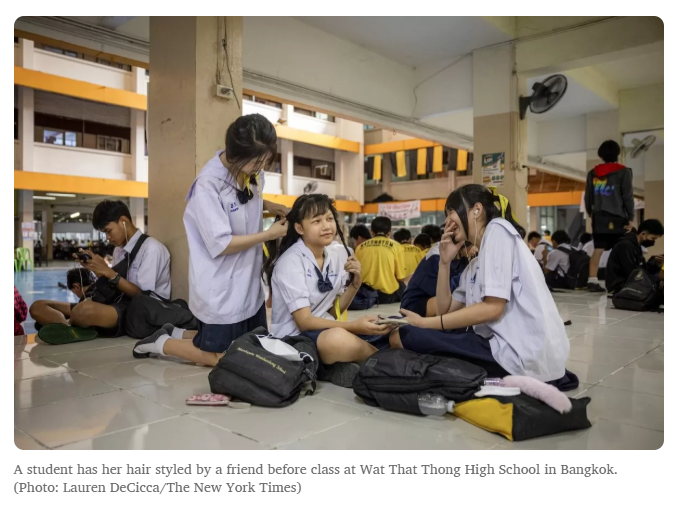
G-Union
News
Oct 10, 2025

The fight for personal expression remains a significant challenge for students in Thailand’s public school system, particularly concerning strict hair regulations. Even after a landmark Supreme Administrative Court decision that struck down the Ministry of Education's national hairstyle directive, many schools, particularly in rural areas, continue to enforce oppressive rules, turning hair inspections into a feared and often humiliating ritual for teenagers.
The rules, which traditionally dictated that boys wear crew cuts and girls trim their hair above the ears, trace their origins back to a 1972 military government directive. For decades, violating these standards could lead to public humiliation, such as a teacher performing a clumsy, unwanted haircut in front of classmates—an experience many Thai adults recall as a lasting "scar."
This policy sparked one of the key demands during the youth-led political protests in 2020, with students equating the uniform conformity to a broader lack of democratic freedom.
In March, the Supreme Administrative Court finally delivered a victory for student rights, overturning the central mandate and giving individual schools the authority to set their own policies. However, the ruling has not resulted in widespread immediate change.
Incidents of overreach continue to surface, such as a school in Ratchaburi province cutting the hair of 50 girls in July for simply wearing their ponytails past their name tags, demonstrating that old habits and authoritarian attitudes remain deeply entrenched.
To many student activists, the issue is about more than just aesthetics; it is fundamentally about democracy and control. Groups like "Bad Student," founded by Laponpat Wangpaisit, argue that the rigid enforcement of hair rules is a tactic to instill obedience and complacency from a young age. Critics suggest this mirrors a mindset within the unelected establishment that prioritizes compliance over fostering citizens capable of independent thought in Thailand's constitutional monarchy.
The psychological impact of these rules is significant. The Supreme Administrative Court, in its ruling, explicitly acknowledged that hair regulations harm the mental health of children and mentioned the particular difficulties faced by those with diverse gender identities. For example, transgender students often face distressing situations where their efforts to align their appearance with their identity are punished, forcing them to hide their natural hair or comply with rules that feel invalidating.
Despite the ongoing resistance in many institutions, some schools are adopting a more liberal stance, recognizing that hair should be a matter of personal choice. Teachers at progressive schools, such as Wat That Thong High School in Bangkok, have embraced the idea that "it is their head, nobody should dictate what they want to do with it." While even these schools may still uphold other uniform policies, their approach to hairstyles provides a successful model for fostering confidence and respect for student autonomy.
Credit and Sharing: This article is based on reporting from the Bangkok Post PCL. All rights reserved. You can find the original article here: